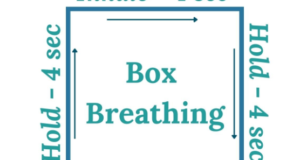
Happiness is something we all strive for, yet certain habits and mindsets can sabotage our well-being. The tricky part? Many of these behaviours are easy to fall into without even realizing the impact they have on our mental health. To cultivate a happier, more fulfilling life, it’s essential to recognize and avoid certain self-sabotaging patterns. Here are six habits that, if practiced regularly, will lead to unhappiness—and what you can do to break free from them.
1. Overthinking: Get Out of Your Head and Into the Real World
It’s easy to get lost in thought, analyzing every detail, worrying about “what-ifs,” and preparing for the worst. Overthinking can trap you in a mental loop that makes small issues feel monumental and significant challenges seem insurmountable. Often, our brains catastrophize or twist reality, especially if we have low self-esteem or hold onto unhelpful beliefs. Overthinking clouds your perspective and convinces you that the world is far scarier than it really is.
- What to Do Instead: When you catch yourself overthinking, bring your focus back to the present moment. Go for a walk, practice mindfulness, or engage in a physical activity that grounds you. Recognize that not every thought reflects reality—some are simply false alarms. Challenge your inner critic and remind yourself of past experiences where things turned out better than you’d expected.
2. Being Too Woke: Letting Offense Control Your Happiness
Caring about social issues and working for a better world is noble. However, taking wokeness to an extreme—where every comment, viewpoint, or imperfection in society becomes a source of offense—can leave you perpetually frustrated. The truth is, the world is flawed, and expecting it to align perfectly with your ideals will set you up for disappointment. If you allow every perceived slight to affect you, your happiness becomes contingent on the behaviour of others, which is beyond your control.
- What to Do Instead: Choose your battles wisely. Advocate for the issues that genuinely matter to you, but be realistic about the fact that not everyone will share your views, and that’s okay. Developing resilience and practicing acceptance for life’s imperfections allows you to maintain inner peace regardless of external circumstances.
3. Isolating Yourself: Connection is Essential for Well-being
It’s natural to crave alone time, but extended isolation—especially common now that so many work from home—can lead to loneliness and a feeling of disconnection from the world. Humans are inherently social beings, and regular interaction with others is essential for mental health. Isolating yourself too often can make you feel disconnected, contributing to feelings of sadness and alienation.
- What to Do Instead: Make it a priority to get out and engage with others daily. Go for a walk in nature, join a class, or meet up with friends. Even a short conversation with a neighbour or a friendly exchange with a barista can lift your spirits. Staying connected with the world around you will help prevent feelings of loneliness and keep you grounded.
4. Focusing on Too Many Negatives: Shift Your Perspective
Today’s world is filled with challenges, from environmental crises to economic instability. Constantly focusing on these negatives can leave you feeling hopeless, pessimistic, and overwhelmed. This focus can lead to a sense of anomie—a feeling of disconnection from society and the loss of purpose. If you’re constantly feeding your mind with negative news and engaging with pessimists, you’ll drain your emotional reserves and find it difficult to maintain a positive outlook.
- What to Do Instead: Limit your exposure to negative news and, occasionally, take a break from conversations that only dwell on problems. Fill your life with positivity by spending time with uplifting people, watching feel-good movies, listening to happy music, and engaging with activities that bring you joy—whether it’s playing with pets, exploring new places, or simply enjoying a hobby. Balance is key; replenishing your positivity will help you stay resilient.
5. Self-Criticism: Embrace Self-Compassion Instead of Perfectionism
We all have an inner critic, but if you constantly berate yourself, it can erode your self-esteem and motivation. Self-criticism often stems from perfectionism, where you hold yourself to impossible standards and struggle to feel “good enough.” Over time, this habit chips away at your happiness, making it difficult to celebrate your achievements or see yourself in a positive light.
- What to Do Instead: Practice self-compassion by treating yourself with the kindness and understanding you’d offer a friend. Let go of perfectionism and acknowledge your successes, however small. Use positive affirmations, keep a gratitude journal, and focus on your strengths, such as patience, tolerance, and kindness. Remember, happiness comes from accepting yourself as you are, not from striving to be flawless.
6. Letting Fear Lead You: Don’t Let Anxiety Dictate Your Life
Fear is a natural instinct that protects us from danger, but when we allow it to take the lead, it can limit our lives. Letting fear dictate your choices keeps you stuck, holding you back from opportunities, growth, and joy. Avoiding situations because of fear may offer temporary relief, but it ultimately restricts your freedom and can prevent you from living a fulfilling life.
- What to Do Instead: Recognize that fear is often based on anticipation rather than reality. Instead of avoiding situations that scare you, take small steps toward facing them. Gradually expanding your comfort zone builds courage and resilience, empowering you to live life fully. Embrace challenges as opportunities for growth, and remind yourself that some of life’s most rewarding experiences lie just beyond your fears.
Conclusion: Choose Habits that Lead to Happiness
Happiness isn’t a destination—it’s a result of your daily choices and attitudes. While it’s natural to fall into habits like overthinking, self-criticism, or isolation, awareness is the first step to making positive changes. By consciously choosing to break free from these patterns, you can build a life filled with connection, self-compassion, and resilience.
Remember, happiness starts from within. By focusing on what you can control, nurturing positive relationships, and cultivating a realistic but optimistic outlook, you set yourself on the path to a fulfilling and joyful life.




